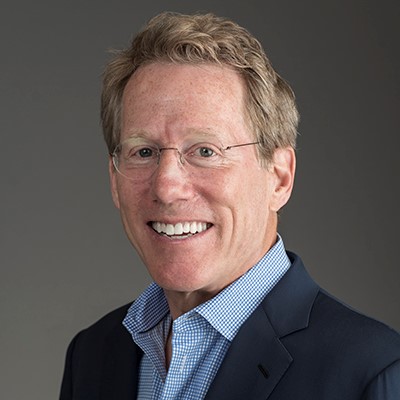How an encounter with the former President of the Soviet Union evoked some of the most powerful emotions I’ve ever felt.
The news that Mikhail Gorbachev died yesterday brought back memories of a day he brought tears— profound tears of a quality I had never experienced before—to my eyes. The date was November 5, 1993, nearly 30 years ago, but I remember it like yesterday.
At the time I was running Fortune’s conference business, an enterprise I had started two years previously. In those days magazines were magazines, but we figured that Fortune was also a brand that could be profitably extended into other fields. A junior executive in the circulation division, I was tapped to lead the effort to develop “line extensions.”
Although few magazines were in the conference business back then, it looked like a good opportunity to me. After all, we were already doing just about everything you needed to do to create a successful conference: creating compelling content, recruiting high-level audiences, selling sponsorships, and executing flawless production on deadline. Our editors had the world’s best business Rolodexes, especially at the CEO level. We also saw that the Fortune 500 brand was even more powerful than the Fortune brand itself, so we launched what became an annual event exclusively for the CEOs of Fortune 500 CEOs: the “Fortune 500 Forum.” After a successful debut in Charleston in 1991, it went to a different US city each year bringing great excitement wherever it went. For 1993 we chose Richmond.
I recruited Mikhail Gorbachev to join us, reaching him via a Boston-based promoter I’d heard was attempting to build a US tour. Gorbachev was less than two years out of office and eager to travel outside of Russia. We struck a deal that included flying the former President and his entourage from Moscow to Richmond. They would fly commercial, but only with the caveat that he would not fly on Aeroflot. When I asked why he wouldn’t fly Aeroflot the answer given was “because it’s full of Russians.”
Shortly after his arrival in Richmond, I was invited to Gorbachev’s hotel room— the Presidential Suite at the Jefferson Hotel— for a planning session. Speaking in Russian through an interpreter, he was open, direct, and quite funny. The birthmark on his face looked even more prominent in person than it did on television. He said how much he was looking forward to spending time with “the capitalists”, handing me a list of CEOs he wished to have private meetings with (it included Jack Welch, Larry Bossidy, Mike Walsh, and Duane Andreas). We arranged for each of them to visit that Presidential suite.
Among our other speakers at that conference was Senate Majority Leader Bob Dole. His opening lines captured the moment. “Given that you’ve already heard from Ira Magaziner, Lloyd Bentsen, Robert Rubin and David Gergen, it’s obvious that I was only invited to satisfy equal time provisions. But I knew things were getting bad when I reviewed the guest list and the only person I knew would defend private enterprise was Mikhail Gorbachev.”
Gorbachev’s keynote address took place on Friday evening, and we staged it regally. After a short reception, the group of approximately 125 CEOs and their spouses were seated in the Jefferson’s “Palm Court” lobby, a Spanish Baroque setting at the base of a grand staircase. Once the guests were seated a herald of trumpeters drew their eyes to the head of the stairs. Gorbachev made his entrance. Russian music played, and he descended the stairs while waving to a standing ovation. Trailing behind him to the top of the stairs, I saw the spectacle just as Gorbachev was seeing it. How surprising to behold the leading capitalists of the world offering a robust ovation to the recently vanquished supreme leader of Communism.
As I took my seat, held for me by my wife Leslie in the back of the room, to watch the speech, an implacable force of emotion came over me. Exactly one month before, I had received the earthshaking news that my father and stepmother had been killed in a car accident while traveling in a faraway place. Like a thunderbolt, word of this tragedy came to us via the US Embassy in Ankara. My father was a rock in my life, my role model, mentor, and inspiration. To lose him and my beloved stepmother was a profound shock, but for whatever reason I had a delayed reaction to the news. Instead of letting myself grieve immediately, I poured myself into the funeral arrangements, into consoling others, and, into my work which at that time included significant preparations for the Fortune 500 Forum.
Suddenly, amid the glitter and finery of an event that I had created, the weight of loss fell upon me. It struck me that I would be unable to share this moment of career accomplishment with my Dad, who would have been so proud. How could he no longer be with me? My tears were silent but my body shook. My wife Leslie, seated beside me, knew instantly what was happening. She put her arm around me, a simple gesture of love and solidarity that help calmed me. Before long, like the Illinois thunderstorms that passed through the Augusts of my childhood, it ended. As with those storms, the water was restorative. My tears reminded me what a gift my love for my father and stepmother was and would be forever. I sensed that, over time, the deep pain of losing them would give way to a more enduring appreciation of the special moments I enjoyed in their lifetimes. And so it has, for the most part. Sometimes those emotions come back to me. Yesterday was one of those days.

